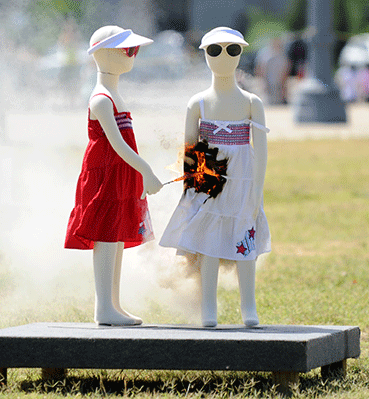
What would the Fourth of July be without cookouts, baseball games, and pyrotechnic displays in the night sky? But it’s easy to forget that fireworks are dangerous explosives, and carelessness could have deadly consequences.
Every year, thousands of people are injured by fireworks—8,600 in 2010 alone, according to the U.S. Consumer Product Safety Commission (CPSC). The agency also reports that three people died the same year.
The federal government has banned sales of the most dangerous fireworks to consumers, such as cherry bombs and M-80s. But sparklers, firecrackers, and other smaller fireworks remain legal in Alabama.
To help make sure your holiday celebrations don’t end with a trip to the emergency room, follow these safety tips from the CPSC:
- Sparklers aren’t safe for small children. They burn at very high temperatures—up to 2,000 degrees Fahrenheit, hot enough to melt some metals—and can easily set clothes on fire.
- Ignite fireworks in a clearing, away from power lines, homes, other structures, dry leaves and grass, and other flammable materials. Never light them in any type of container.
- Keep a bucket of water handy in case of emergencies and for fireworks that fail to ignite or explode.
- Check instructions for storage, but generally keep fireworks in a cool, dry place.
- Do not place any part of your body directly over fireworks while you’re lighting them, and immediately move away as soon as the device is lit.
- “Homemade” fireworks kits are illegal. Never try to make your own.
- After fireworks have completely burned out, soak them with a hose before throwing them in the trash to help prevent fires.
The Fourth of July is a time to celebrate, but we urge you to use caution with fireworks—and always look up for power lines before you shoot anything skyward.
From NRECA




